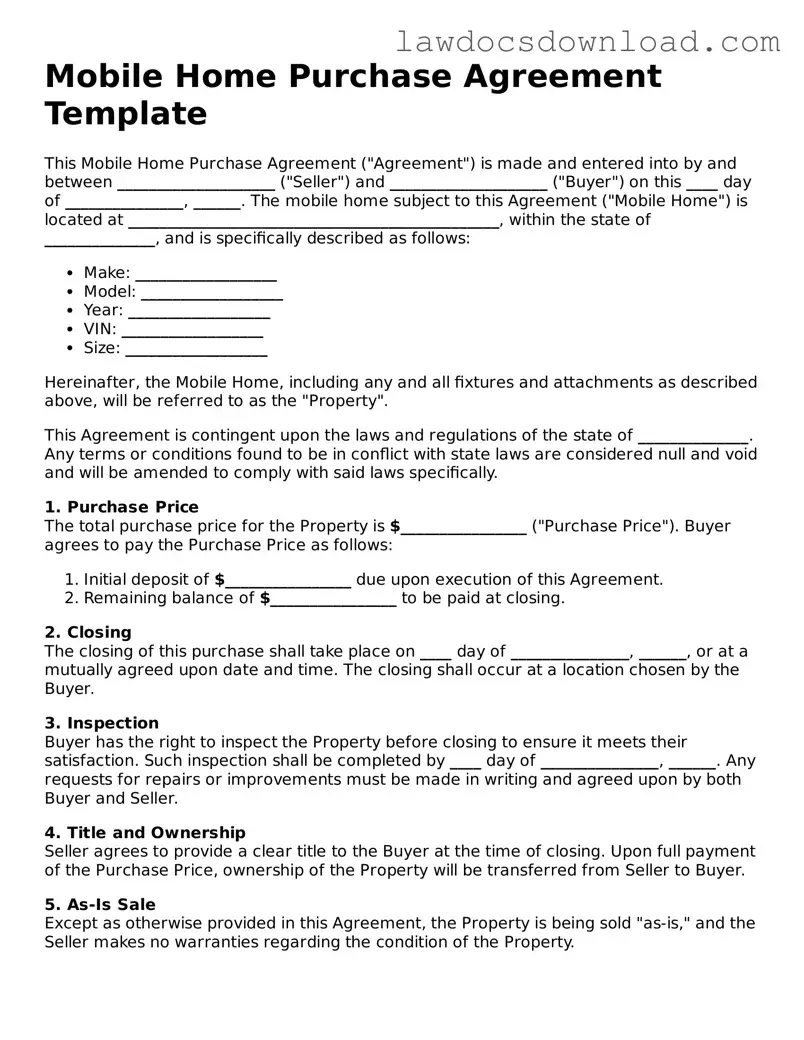Blank Mobile Home Purchase Agreement Template
A Mobile Home Purchase Agreement is a legal contract used to outline the terms and conditions of the sale of a mobile home from a seller to a buyer. This form ensures that all aspects of the sale are clear, from price to the transfer of ownership, providing both parties with legal protection. It is an essential document for anyone looking to buy or sell a mobile home, ensuring a smooth and legally sound transaction.
Launch Mobile Home Purchase Agreement Editor Here

Blank Mobile Home Purchase Agreement Template
Launch Mobile Home Purchase Agreement Editor Here

Launch Mobile Home Purchase Agreement Editor Here
or
Free Mobile Home Purchase Agreement
Get this form done in minutes
Complete your Mobile Home Purchase Agreement online and download the final PDF.